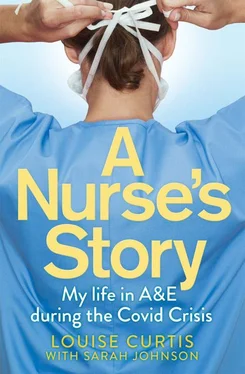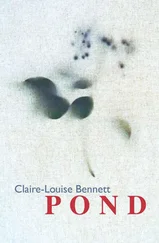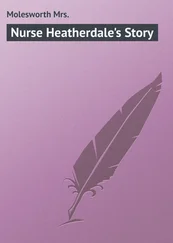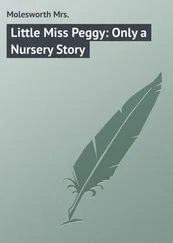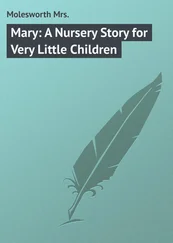When I finally made it out of the house to the launderette (our utility room was being refurbished and so the washing machine was unplugged), I sat watching the repetitive circular motion of my laundry for forty-five minutes while crying. It was the type of sobbing where you struggle to breathe. I had palpitations and felt so uncomfortable being outside. I couldn’t pick up the phone to friends who were calling me as the thought of talking to them was unbearable.
It wasn’t long before I had to decide what to do about work. How long is an appropriate time to take off when your father dies? My sister returned to work after a week. I was jealous and angry that she had managed to regain some form of normality, but then I remembered what was expected of me.
Officially, we get two days’ leave for a bereavement of a close family member. If you need longer, you get signed off work, ill. The thought of people dying in front of me when my grief was so raw made me feel sick with worry, so I decided to take some time out. I was also worried that my patient care would be compromised and didn’t want any lives put at unnecessary risk.
I wasn’t ready to make decisions about whether resuscitating a patient whose heart had stopped was in their best interests, or for the difficult and frank conversations I would inevitably have to have with patients and families. I didn’t want to have to break bad news, like the time I had to tell a patient that the back pain they’d had for the last six months – and I had to stop myself from rolling my eyes when they were first admitted – was a symptom of their as yet undiagnosed lung cancer which had spread to the spine. I couldn’t muster the energy to be my usual, upbeat self.
After the initial all-encompassing fog of grief lifted, I realized I had an advanced life support refresher course coming up at work. It involved a written and practical exam. You’re a very fortunate person if you manage to get on to these courses and they’re in high demand and very expensive.
Not wanting to disappoint, I decided to return to work. The written test was fine. In the practical exam we were given a simulation scenario which had already been scripted. The one assigned to me led to me having to make the difficult but correct decision to stop resuscitating the patient. Everyone else managed to save a life. Typical, I thought. Straight afterwards, I burst into tears. It was too close to home and the whole team knew it. They were really nice about it, though, and gathered round me to give me some comfort and to let me know I’d handled it really well.
My first shift back on the shop floor of A&E involved comforting the daughter of a patient who we had decided to complete a Do Not Attempt Resuscitation (DNAR) form on. She completely agreed with the decision but seeing her sobbing and whimpering ‘Dad’ as she sat by his bedside was heart-wrenching and emotionally testing for me. My next patient had taken an overdose because their father had died that day. The saying ‘bad luck comes in threes’ certainly seemed true at that moment.
As the weeks passed, I still thought about Dad every day, more than I thought about Covid-19. The threat from the virus didn’t seem real, unlike the pain of losing Dad. Even when I found out about one of the first cases of suspected Covid-19 in Newcastle, I still didn’t really take it seriously. We were told in a meeting at work, but the sentiment was very much one of, ‘We’ll be fine, guys.’ I thought that Newcastle was fairly distant. My mother was in North Yorkshire but a good hour and a half drive away, and my sister was in London. Then, on 12 February, the first case in the capital was confirmed, a woman who’d returned from China. By 27 February the UK had 15 confirmed cases.
In hindsight, my dad had impeccable timing in dying when he did. It was the same when he was alive. He had been a colonel in the army and our childhood was dominated by his teachings on timekeeping, integrity, charm, tidiness, and ‘work hard, play hard’ approach to life. Not all of it rubbed off on my sister; despite her being intelligent and highly capable, tidiness is not her strong point. I used to get paid £5 to find her glasses in her mess of a bedroom.
Dad would have been classed in the vulnerable, high-risk group of people most susceptible to the damaging effects of this new virus. A natural extrovert, he would have hated physical distancing and not being able to go out and make jokes with all the villagers and the shopkeepers in the nearest town. And if he’d caught the virus? Clinicians across the world were making morally difficult decisions about their patients’ care. Deciding who would be taken to intensive care in the hope that they recover and who would not when this escalation in care would prove futile. For some patients, it was simply too late and the best we could do was to make them comfortable.
I know that any medic looking at my dad would have seen a man in his eighties, albeit fit for his age, and would most likely have decided not to escalate him to intensive care. Knowing that is difficult. So, well done, Dad, on dying when you did. As ever, your timing was perfect.
The beginning of March was still business as usual in A&E. People were coming into the department with little to no concerns regarding coronavirus. The total number of confirmed cases in England on 2 March reached 104. The numbers were small.
Covid-19 was getting closer but I still wasn’t overly alarmed yet. I had something else to worry about. I phoned home for a catch-up with Mum one evening; I was really concerned about her living on her own in the house she had shared with my father for so many years. It seemed empty to my sister and me without his presence when we were at home for the cremation and service of thanksgiving. He was such a stable rock in all our lives. She mentioned that her brother, my only uncle, had been diagnosed with lung cancer. She didn’t go into detail and said that she hadn’t read his email properly, but she did say that an operation was scheduled for a few weeks’ time. He’d known when he came up to see us when my father died and had said nothing; I guess it wasn’t the right time. That he was having an operation meant that the cancer was localized to one area that they could remove, so I was hopeful. He had also looked well when I saw him. It was another blow to my family though, and so soon into 2020. I hoped my aunt wasn’t too worried.
In those early days, I saw a patient who had recently had a nose job. She had gone to Thailand to get it done, which was on the list of countries that were listed as coronavirus hotspots.
‘I couldn’t afford to have it done in the UK so I had to go abroad,’ she said.
Now, she was experiencing swelling and pain.
‘Are you experiencing any other symptoms?’ I asked her. I was a little wary that she might have coronavirus.
‘I haven’t had a fever, a cough or a sore throat, if that’s what you’re getting at. I definitely don’t have the coronavirus.’
Those symptoms were the warning signs at the time. I asked my specialist ear, nose and throat colleague to come and review her as I knew next to nothing about nose jobs. He shared my anxiety, but I reassured him that she had no Covid symptoms. Little did I know then that so many people would be carriers of the virus while presenting no symptoms.
Face masks were hardly used at the time so it was a surprise to walk into one cubicle and see a woman wearing one with unicorns and rainbows all over it. It seemed like a fashion statement, especially when she took it off when I stepped in to see her. Was I a safe bet? I tried to suppress the 6 a.m. sniffles that I get most night shifts when I’ve been working for hours and am tired.
Читать дальше
